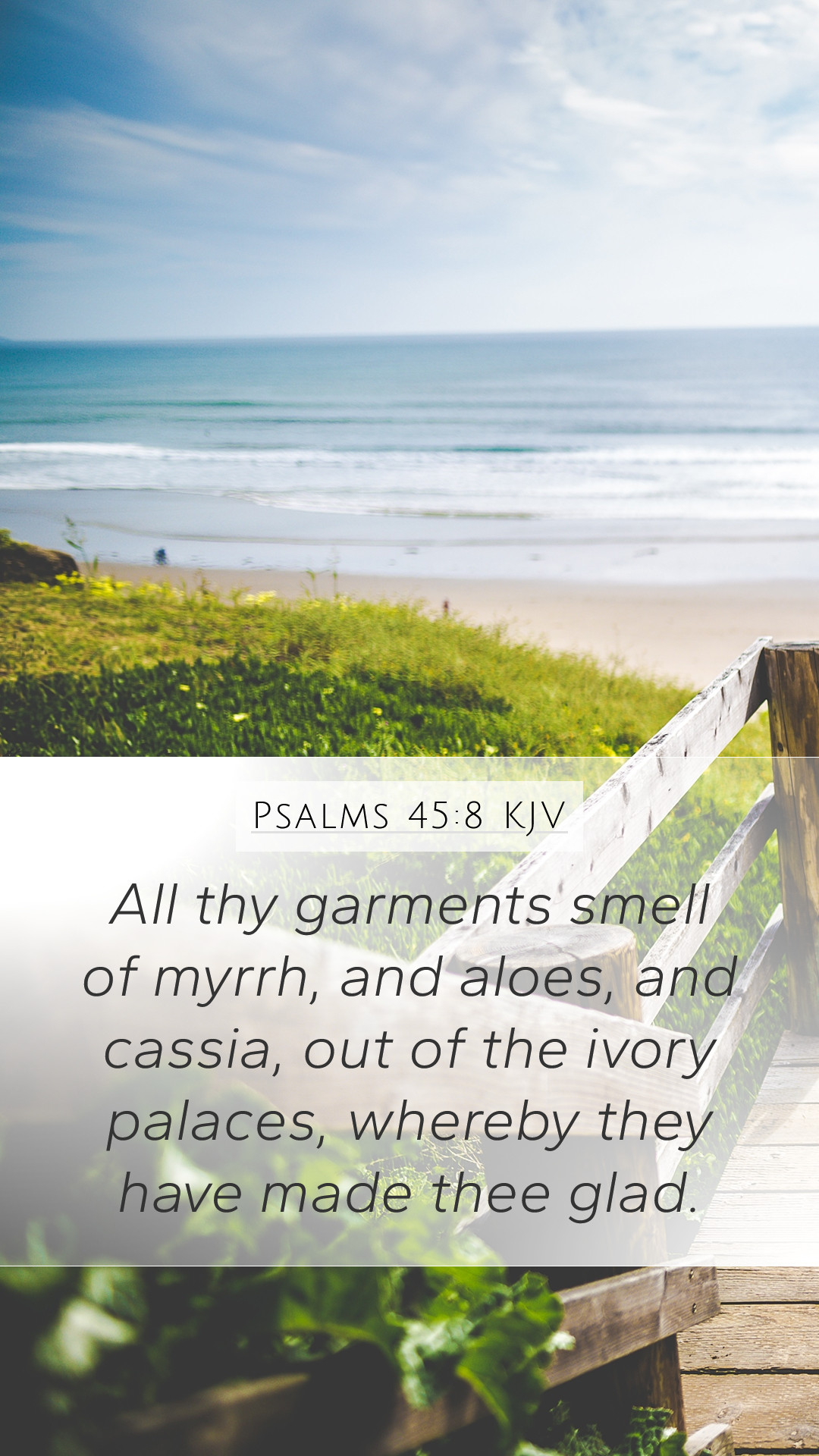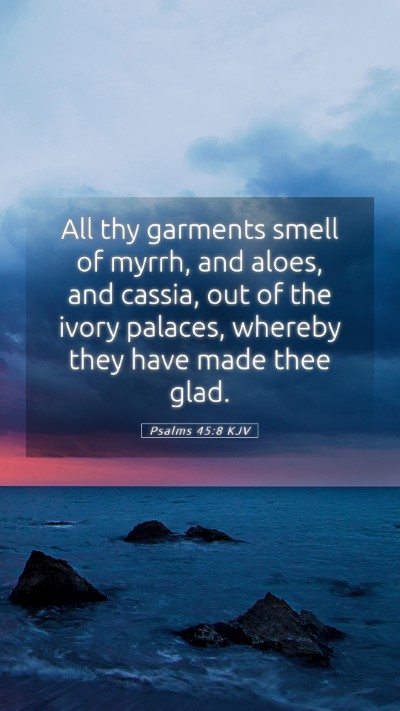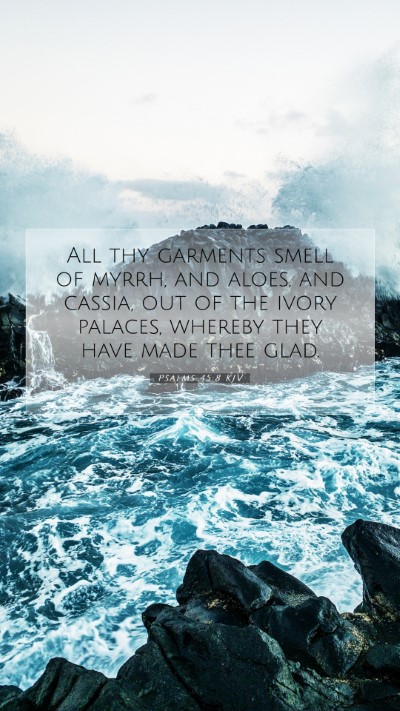Psalms 45:8 - Understanding the Meaning of Bible Verses
The verse Psalms 45:8 states, "All Your garments are scented with myrrh and aloes and cassia; out of the ivory palaces, by which they have made You glad." This verse contains rich symbolism and profound meaning, often interpreted in various ways by scholars and theologians throughout history. Below is a synthesis of interpretations and insights drawn from esteemed public domain commentaries such as Matthew Henry, Albert Barnes, and Adam Clarke.
Commentary Overview
Psalms 45 is a royal psalm, traditionally associated with weddings and celebrations of kings. The imagery used in this verse portrays beauty, pleasure, and the attributes of the king's character.
Verse Breakdown
-
Garments and Their Scent:
The mention of garments scented with myrrh, aloes, and cassia signifies luxury and the importance of fragrance in relation to royalty. Matthew Henry notes that these are aromatic substances associated with joy and celebration, commonly used in anointing and burial rites, highlighting both the glory and the sorrow that accompany a king's life.
-
Ivory Palaces:
The reference to "ivory palaces" suggests a place of great opulence and beauty. Albert Barnes emphasizes that this symbolizes the exalted status and majestic presence of the king. The use of ivory, a material valued for its rarity and strength, reflects the strength and purity of the king’s character.
-
Joy and Gladness:
The latter part of the verse, “by which they have made You glad,” indicates that both the environment and the king’s quality are designed to promote joy. Adam Clarke explains that the gladness experienced is not only due to material wealth but also the spiritual and emotional wellbeing of the king and his people.
Symbolism and Significance
The verse's rich symbolism invites deeper inquiry into its implications for our understanding of divine attributes and human kingship. Myrrh, aloes, and cassia are not merely perfumes but signify the presence of the Divine, hinting at the nature of Christ and His sacrificial role. Such interpretations elevate this scripture beyond its immediate historical context, offering a biblical exegesis that reaches into New Testament fulfillment.
Application to Daily Life
The imagery invites readers to reflect on the qualities they cultivate in their lives and the environments they create. Just as the king’s garments are infused with fragrance, the lives of believers are called to be filled with the Spirit, bringing joy to those around them. This verse challenges individuals to consider how they can embody these virtues in daily interactions.
Related Bible Verses
- 2 Corinthians 2:14: "But thanks be to God, who always leads us in triumphal procession in Christ and through us spreads everywhere the fragrance of the knowledge of him."
- Psalm 63:5: "My soul will be satisfied as with fat and rich food, and my mouth will praise you with joyful lips."
- Isaiah 61:3: "To grant those who mourn in Zion—to give them a beautiful headdress instead of ashes, the oil of gladness instead of mourning, the garment of praise instead of a faint spirit."
Conclusion
Understanding Psalms 45:8 enriches our Bible study insights and enhances our Bible verse understanding. Through careful analysis and commentary, we delve into the beauty, symbolism, and spiritual significance of this verse, as it relates to both historical kingship and our personal lives as followers of Christ. The encouragement to embrace the qualities of joy, richness, and beauty, as represented in this verse, serves as a guide for readers seeking to embody these truths in their spiritual walk.
Further Study Recommendations
- Engage with Bible study courses focusing on the Psalms.
- Participate in Bible study groups to discuss interpretations and applications of royal psalms.
- Utilize Bible study tools to explore the historical context of Old Testament writings.


